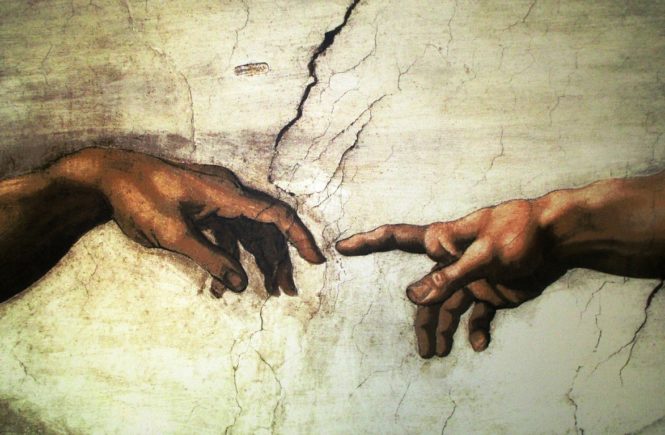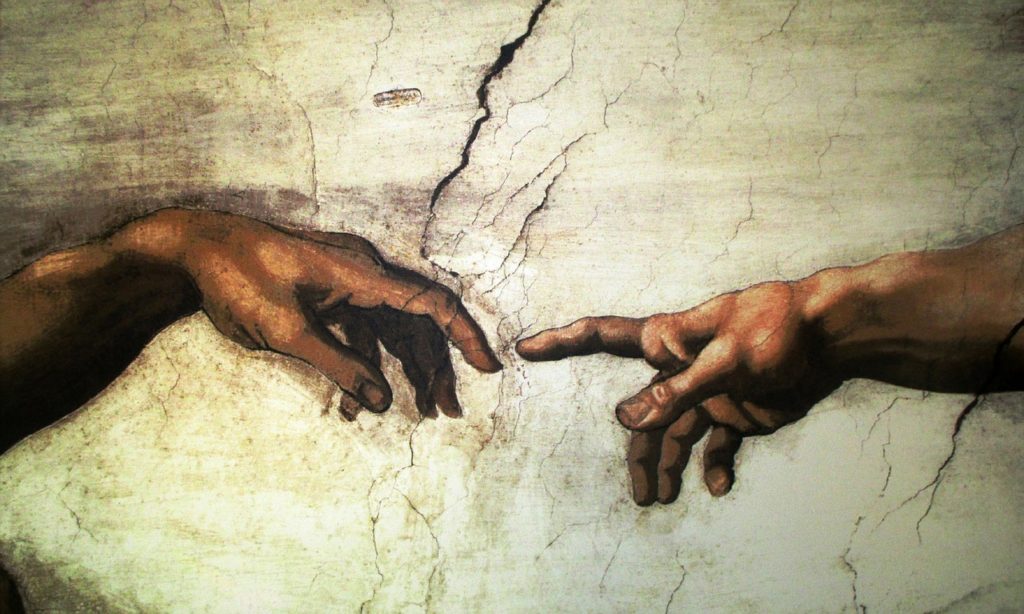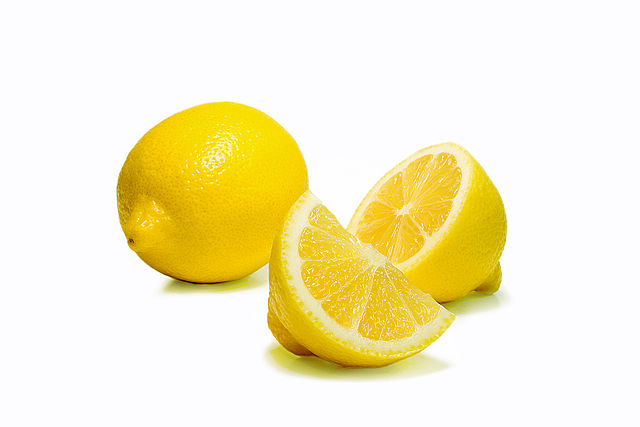“I am the most humble man on earth, you really should learn from me.” Only one person who could in all honesty say that phrase without falling into the temptation of pride, and today in the Gospel acclamation we hear from that person. “Learn from me,” Jesus says, “for I am meek and humble of heart” (Mt 11:29). Only Jesus Christ can speak of true humility. Jesus humbled himself from divine nature to human nature, and took our form in all things but sin. Adam, our first father, fell because of the temptation of pride; it was therefore necessary and fitting that Jesus Christ, the new Adam, should redeem us with the virtue of humility.
In today’s Gospel, Jesus has become an up-and-coming celebrity. He was well known as being the new prophet in town and teacher in town, a generator of miracles and wisdom. One day Jesus was invited to attend a dinner hosted by a leading Pharisee, a renowned leader of the community. Imagine attending a fancy, formal dinner, with assigned seating. While drinking cocktails, all the guests are busy checking out who is at the party, and not just who is at the party but where they are. Everybody wants to know who got the best and most important seats, the ones next to the hosts, and who has been shoved into the back corner. While everybody is busy looking, mingling, and coveting the best seats, Jesus realizes what is happening, and he uses this as an opportunity to give a teaching on the virtue of humility.
It seems that we have to be reminded over and over again that we are not ‘all that’. They say that the best business in the world would be to buy a man for what he’s worth and sell him for what he thinks he’s worth. Now, we may not be coveting the assigned dinner seating, but we are often very aware of other people—what job they have, what they are wearing, how they are wearing it (on red carpets!), and what side of town they live in—and we are quick to start defining dignities according to that.
There are two ways to look at life. On the one hand, life can be something we believe we are entitled to. We say “I make my own life. My accomplishments, my success, my family, my business, my house, my possessions.” On the other hand, we can see life as a gift, and live it with wonder and amazement. From the first perspective, life is something we give ourselves, trying to make ourselves happy in the pursuit of what society and we think has value; the second perspective holds that life is a not something to be necessarily controlled, it is a gift, and it is to be lived with Our Heavenly Father, from whom it draws its true value and dignity.
Humility is not about living according to what we think we should be doing, or the life we think we should be leading. Saint Teresa tells us that humility is to to live our life according to the truth. To live humbly is to live in truth. What truth is that, we may ask? The truth that we are sons and daughters of God, and human beings of equal divine dignity. St Teresa puts it this way, when talking to her novices
If I try to make myself as small as I can, I’ll never become humble. It is humility with a hook. True humility is truth. Humility comes when I stand as tall as I can, and look at all of my strengths, and the reality about me, but put myself alongside Jesus Christ. And it’s there, when I humble myself before Him, and realize the truth of who he is, when I accept God’s estimate of myself, stop being fooled about myself and impressed with myself, that I begin to learn humility. The higher I am in grace, the lower I should be in my own estimation because I am comparing myself with the Lord God.
Thus, humility is an attempt to see ourselves as God sees us. It is also the acknowledgement that our talents come from God and from ourselves.
Humility is truth, and this is something we have to reflect on continuously because true humility is not making us feel bad about ourselves, our failings, or our weaknesses. True humility, according to Jesus, is not about having a low opinion about yourself. Jesus said “I am the resurrection and the life” (Jn 11:24), “I am the way and the truth and the life” (Jn 14:6), and “the son of the living God” (Mt 16:16). That is not having a low opinion of yourself, and yet to Jesus tells us to follow him in this, and to “learn from me, for I am meek and humble of heart” (Mt 11:29); if anything, humility is to live according to our dignity as sons and daughters of God, in all its greatness.
True humility is not walking through life avoiding eye contact, as though unworthy of life itself. Christ said “I have come that you may have life and that you have it abundantly” (Jn 10:10). God glories in seeing you blossom, but the higher the edifice of holiness and sanctification, the deeper the foundations of humility must go. Remember, humility is not an emotional burden. Humility is not telling ourselves that we are small and unworthy; humility is the remembrance that we are sons of god, all of us, of equal dignity. C.S. Lewis once said,
“Do not imagine that if you meet a really humble man he will be what most people call ‘humble’ nowadays: he will not be a sort of greasy, smarmy person, who is always telling you that, of course, he is nobody. Probably all you will think about him is that he seemed a cheerful, intelligent chap who took a real interest in what you said to him. If you do dislike him it will be because you feel a little envious of anyone who seems to enjoy life so easily. He will not be thinking about humility: he will not be thinking about himself at all.”
True humility is liberating. True humility liberates us from the burden of judgement, the judgments we make of ourselves and of others. True humility liberates us from the judgments we make about what we are wearing, and how others perceive our appearance. True humility is to see ourselves as we are, and to see others as they are. It can be very easy to judge others, and often we do it subconsciously, we slip into judgement about those who don’t measure up to our expectations about how they should be behaving.
In order to grow into humility we have to change our focus in life. As we discussed earlier, our focus can be all about Me, about what I do, what I accomplish, and how other people appreciate those accomplishments, or it can be about the glory of God, and the gifts and the wonder of a life lived with Our Father. If we chose the second option, and fix our gaze on Him, then we will gradually learn to be humble.
I would like to offer three suggestions for how to grow into humility.
- Talk less about yourself and listen more
A good way to measure how much my life revolves around “me” is to pay attention to to focus of my thoughts and conversations, how often do I use the word I? Sometimes the ones closest to us are the ones we find it the hardest to listen to; we feel that we know them already, inside and out. If I believe every person has an intrinsic dignity, that the person in front of me has a fascinating story to share, with dreams and sufferings, beliefs and doubts, then I will be more interested in her. Let us talk less about ourselves and listen more to others, particularly our families.
- Commit hidden acts of generosity
Today’s Gospel concludes that if we are going to do something, for example throw a party and invite people, that it should be done for those who will not repay us, in other words, it should be done as an act of true generosity. A hidden act of generosity is a wonderful thing. We are not going to lose our life if we surrender the remote control for one evening, and let another person chose the programming. Nor will we suffer if we take the initiative to take out the trash, wash the dishes, smile to the vendor and ask him about his day, or make an effort to not complain when you get back from work but rather focus on making a good dinner.. In fact, these small acts of generosity mean a lot, not only to the person they are focused on, but especially to ourselves, as they liberate us from the tyranny of “I.” Hidden acts of generosity are themselves acts of gratitude to Our Father for the gift of life and for the gift of others, which brings us to the third.
- Be grateful for what you do have
One of the harmful things about pride is that it keeps reminding us of what we don’t have. We think to ourselves: I don’t have this house, I don’t have these clothes, I don’t have the vacation, I was the one the promotion was due to, I don’t have his looks. We are so anxious about what we don’t have that we forget the greatness of what we do have. We can be grateful for the gift of life, and the gift of faith; we can be grateful right now for the gift of being here adoring Our God with our loved ones. If we focus on what we do have, on what is real and true in our lives, this will lead us to humility and liberate us from pride.
Let us ask Mary to show us humility, for she was the handmaid of the Lord, and it was her humility, her living in truth, that “caught God’s attention.” Let us ask her to show us how to grow in the virtue of humility, knowing that one of the first fruits of humility is joy: “My soul proclaims the greatness of the Lord, my spirit rejoices in God my savior” (Lk 1:45).
This post is also available in: Spanish




